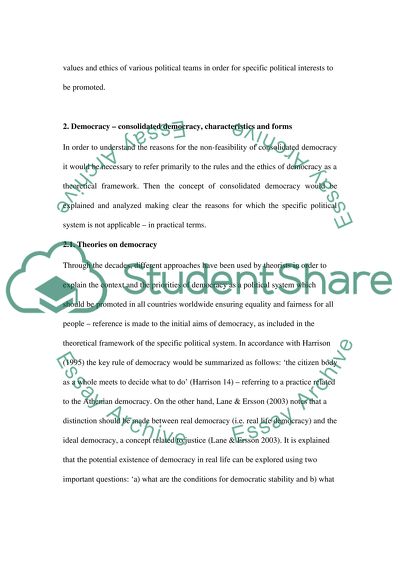Cite this document
(“To talk of a consolidated democracy is a myth. How far do you agree Essay”, n.d.)
Retrieved from https://studentshare.org/environmental-studies/1406315-to-talk-of-a-consolidated-democracy-is-a-myth-how
Retrieved from https://studentshare.org/environmental-studies/1406315-to-talk-of-a-consolidated-democracy-is-a-myth-how
(To Talk of a Consolidated Democracy Is a Myth. How Far Do You Agree Essay)
https://studentshare.org/environmental-studies/1406315-to-talk-of-a-consolidated-democracy-is-a-myth-how.
https://studentshare.org/environmental-studies/1406315-to-talk-of-a-consolidated-democracy-is-a-myth-how.
“To Talk of a Consolidated Democracy Is a Myth. How Far Do You Agree Essay”, n.d. https://studentshare.org/environmental-studies/1406315-to-talk-of-a-consolidated-democracy-is-a-myth-how.


